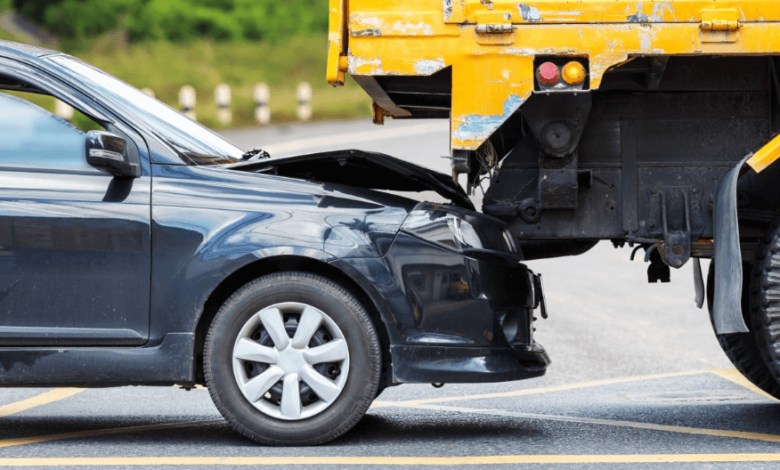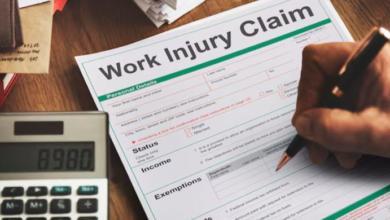How Trucking Companies Try to Shift Blame After a Serious Crash

Trucking accidents often result in severe injuries, extensive property damage, and devastating losses for victims. When a trucking company faces potential liability after a crash, they may try to shift blame away from themselves and their drivers. Instead of accepting responsibility, some companies use legal and insurance tactics to place fault on other motorists, environmental factors, or mechanical failures to reduce their financial and legal exposure.
For accident victims, these blame-shifting strategies can make securing fair compensation more difficult. Trucking companies have extensive legal teams and insurance adjusters who work aggressively to dispute claims. Understanding how these companies attempt to shift responsibility is essential for countering their tactics. Consulting an experienced Austin truck accident lawyer can help victims build a strong case and hold negligent parties accountable.
Blaming the Other Driver for the Accident
One of the most common tactics trucking companies use is shifting blame onto the other driver. They may argue that the accident was caused by reckless driving, speeding, sudden braking, or improper lane changes. Their legal teams work to gather any evidence that can discredit the victim’s account of the crash.
Trucking companies and their insurers may attempt to manipulate accident reports, eyewitness statements, or dashcam footage to make it appear that the victim was at fault. If the victim was partially responsible, companies may try to exaggerate that percentage of fault to reduce the amount they owe in damages. Having a skilled attorney who can gather independent evidence and challenge false claims is critical in these cases.
See also: Everything You Need to Know About Vehicle Transportation in Delaware
Arguing That Road or Weather Conditions Caused the Crash
Another way trucking companies deflect responsibility is by blaming poor road or weather conditions for the accident. They may claim that rain, fog, ice, or uneven road surfaces made it impossible for the driver to prevent the crash. While external factors can play a role in accidents, professional truck drivers are trained to adjust their driving to account for weather and road conditions.
A trucking company may argue that the accident was unavoidable due to sudden changes in weather, but black box data, speed logs, and driver communication records can reveal whether proper precautions were taken. If a truck driver was speeding in poor conditions or failed to adjust following safety protocols, liability still falls on the company.
Claiming Mechanical Failure or Tire Blowouts Were Unpreventable
Trucking companies sometimes argue that a mechanical failure—such as brake malfunctions, tire blowouts, or steering issues—caused the accident and that they are not responsible. However, these arguments often overlook the company’s responsibility to maintain and inspect its fleet regularly.
Federal regulations require trucking companies to conduct routine maintenance and safety inspections to prevent mechanical failures. If an investigation reveals that a truck had not been properly serviced, lacked necessary repairs, or had worn-out components, the company can still be held accountable. Accessing maintenance records and inspection logs is essential for proving negligence in these cases.
Shifting Blame to a Third Party
Many trucking companies attempt to avoid liability by pointing fingers at third parties, such as vehicle manufacturers, cargo loaders, or maintenance contractors. They may claim that a defective truck part caused the accident or that improperly loaded cargo contributed to the crash. While third parties can sometimes be responsible, trucking companies still have a duty to ensure their trucks are in safe working condition before they hit the road.
If a cargo shift or unsecured load led to a crash, the trucking company must prove that it was unaware of improper loading or that another party was responsible for securing the cargo. In many cases, trucking companies try to shift blame even when they had control over these safety procedures. A detailed investigation can uncover whether the company overlooked unsafe loading practices or failed to inspect the truck before departure.
Using Insurance Adjusters to Minimize the Claim
After an accident, insurance companies representing trucking businesses will act quickly to protect their interests. Adjusters may contact victims to obtain statements, often attempting to get them to say something that could be used against them later. They may downplay injuries, offer lowball settlements, or pressure victims into signing agreements before they understand the full extent of their damages.
Victims should avoid speaking with trucking company representatives or signing any documents without consulting an attorney. Insurance companies are not on the side of accident victims—they work to save money for the trucking business. An experienced attorney can handle all communications with insurers and negotiate for a fair settlement.
Concealing or Destroying Crucial Evidence
Trucking companies that fear liability may attempt to hide or destroy evidence that could prove their fault in an accident. This includes:
- Deleting or altering electronic logging device (ELD) data
- Erasing black box records that show speed and braking activity
- Falsifying driver rest logs to hide violations of hours-of-service regulations
- Concealing maintenance reports that reveal past safety issues
Federal laws require trucking companies to preserve accident-related records, but some attempt to dispose of incriminating documents. An attorney can send a legal notice called a “spoliation letter” to ensure that all evidence is preserved for the case.
How Victims Can Fight Back Against Blame-Shifting
When trucking companies try to shift blame, victims must take proactive steps to protect their rights. Collecting strong evidence and working with a legal team can make a significant difference in proving fault and securing fair compensation. Essential steps include:
- Gathering Witness Testimony – Eyewitness accounts can help counter false claims made by the trucking company.
- Obtaining Surveillance and Dashcam Footage – Video evidence can provide a clear picture of how the accident happened.
- Requesting Black Box Data – The truck’s electronic data can reveal speed, braking patterns, and driver behavior leading up to the crash.
- Securing Medical Documentation – Proper medical records help prove the severity of injuries and prevent insurance companies from downplaying damages.
- Hiring an Experienced Lawyer – An attorney can investigate the case, challenge blame-shifting tactics, and hold the trucking company accountable.
Why Holding Trucking Companies Accountable Matters
Allowing trucking companies to shift blame for accidents enables unsafe practices to continue. When companies refuse to accept responsibility, they avoid making necessary safety improvements that could prevent future crashes. Holding them accountable not only ensures justice for victims but also encourages better training, stricter hiring standards, and improved vehicle maintenance.
Truck accident victims deserve fair compensation for their medical expenses, lost income, and pain and suffering. If a trucking company is trying to deflect responsibility, working with a dedicated Austin truck accident lawyer can help victims fight back, expose negligence, and recover the compensation they need to rebuild their lives.




